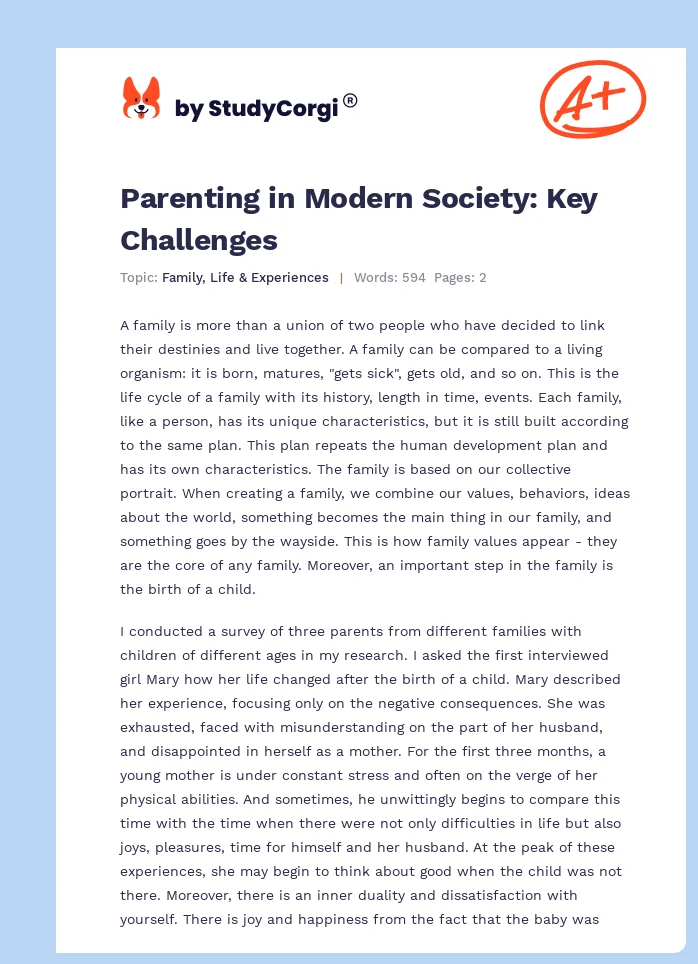
Co-parenting involves the joint responsibility of child-rearing by both parents who are divorced, separated, or in a non-romantic relationship, as well as by extended family members or legal guardians who take on parenting roles.
Although Western societies perceive co-parenting as a practical and advantageous method for raising children following a separation, the experiences and effectiveness can vary significantly among various cultures that still face difficulties in implementing it.
This difference raises a significant question: "What causes co-parenting to be more challenging in some cultural environments?"
Stigma around single parents
Co-parenting varies across different cultures, influencing the values, beliefs, and religious aspects that underpin these arrangements, which can either facilitate or hinder their success.
Although structured co-parenting plans might be restricted in Nigeria because of cultural traditions, financial difficulties, and social judgment, numerous divorced or separated parents continue to stay in touch with their children.
Although the advantages of extended family systems are crucial in aiding children within society, there remain deficiencies in legal implementation, along with social prejudice towards single-parent households, which still hinders the co-parenting approach in Nigeria.
The 2018 Nigeria Demographic and Health Survey indicated that 9.5 percent of mothers are single parents, with figures varying between 2.9 percent in the Northwest and 20.3 percent in the South-South.
Impact of culture and faith
In a male-dominated society such as Nigeria, men typically have the main power in the family and make decisions about children. Following a breakup, fathers might keep most legal or social rights, while mothers may be mainly responsible for raising the children.
Joint parental duties are frequently not acknowledged within cultural norms, leading to difficulties in co-parenting and societal disapproval, which can greatly affect the physical and emotional welfare of children.
Religious convictions frequently shape perspectives on marriage, separation, and shared parenting within our community. In some spiritual traditions, marriage is regarded as a holy, enduring bond, with divorce either discouraged or not allowed, leading to less common co-parenting arrangements.
Individuals who engage in it frequently encounter disapproval, negative judgment, and exclusion by their society as a result.
Emotional attachment
From a cultural perspective, child-rearing is often viewed as a shared duty among the extended family, rather than solely the parents' role. The involvement of grandparents, aunts, uncles, and other relatives can complicate co-parenting during separation or divorce, as important decisions may be shaped or decided by older family members or through family agreement.
This frequently makes it challenging for parents to agree on co-parenting without getting emotionally attached to the impact it will have on the family.
Raising children together after a split or divorce can be difficult, yet it is achievable through teamwork and a shared recognition of the significance of putting the child's best interests first.
Lack of support
Legal frameworks have a major impact on co-parenting in various societies. In nations where legislation promotes this approach, they also foster mediation and offer assistance for co-parenting, which enhances its success.
In Nigeria, statutory law promotes co-parenting in the child's best interest, yet this can be challenging to implement in reality. When legal safeguards and assistance for co-parenting are absent, parents frequently face difficulties in establishing equitable and collaborative arrangements.
Additionally, traditional and Islamic law might support one parent based on local customs or may not acknowledge shared parenting. This is particularly common in societies where separated or single mothers have few rights, and there are no social services available.
Provided by SyndiGate Media Inc. (Syndigate.info).
Posting Komentar